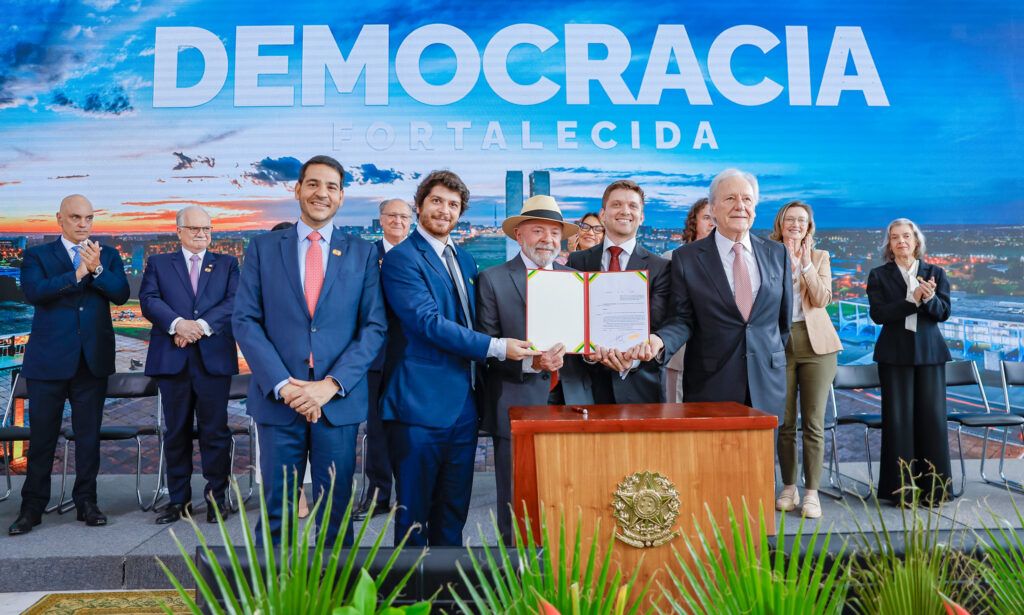São Paulo, Brazil – Brazil’s authorities held a solemn ceremony on Wednesday to recollect the second anniversary of the violent January 8, 2023 assaults on the Nationwide Congress, the Presidential Palace, and the Supreme Federal Courtroom within the nation’s capital.
Led by President Luiz Inácio Lula da Silva, the occasion aimed to underscore a renewed dedication to democracy. Nonetheless, the gathering confronted criticism from political opponents and was largely attended by members of Lula’s Employees’ Social gathering and his administration, together with cupboard ministers.
Notably absent had been the heads of Brazil’s legislative our bodies — Arthur Lira, Speaker of the Chamber of Deputies, and Rodrigo Pacheco, President of the Senate.
(Ricardo Stuckert / Presidency of Brazil courtesy)
Supreme Courtroom Chief Justice Luís Roberto Barroso additionally didn’t attend. The court docket was as a substitute represented by Justices Edson Fachin, Cármen Lúcia, Gilmar Mendes, Cristiano Zanin, and Alexandre de Moraes, who has been main investigations into the January 8 assaults. Navy commanders, who report back to the president, had been current on the occasion.
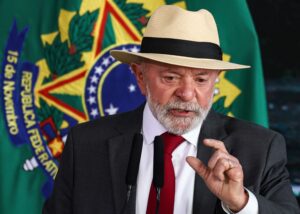
(Marcelo Camargo/Agencia Brasil courtesy)
“Right this moment, we are saying loud and clear: we’re nonetheless right here. We’re right here to affirm that we’re alive, and democracy is alive, opposite to the hopes of the coup plotters of January 8, 2023,” Lula declared in his opening remarks.
The assaults, carried out by supporters of former President Jair Bolsonaro dissatisfied with Lula’s October 2022 election victory, prompted intensive destruction in Brasília. Protesters, a lot of whom had been camped exterior navy barracks throughout the nation, converged on the capital on January 8, unleashing chaos upon the symbols of Brazil’s democratic establishments. Whereas the assault examined the resilience of the nation, it in the end did not undermine the foundations of Brazilian democracy.
Thus far, greater than 2,000 people are underneath investigation for his or her roles within the assaults. The Supreme Courtroom has already convicted 371 individuals, with sentences starting from three to 17 years in jail. Most convictions have been categorised as extreme, involving crimes resembling trying to abolish the democratic rule of regulation, staging a coup, prison harm, conspiracy, and the destruction of public property.
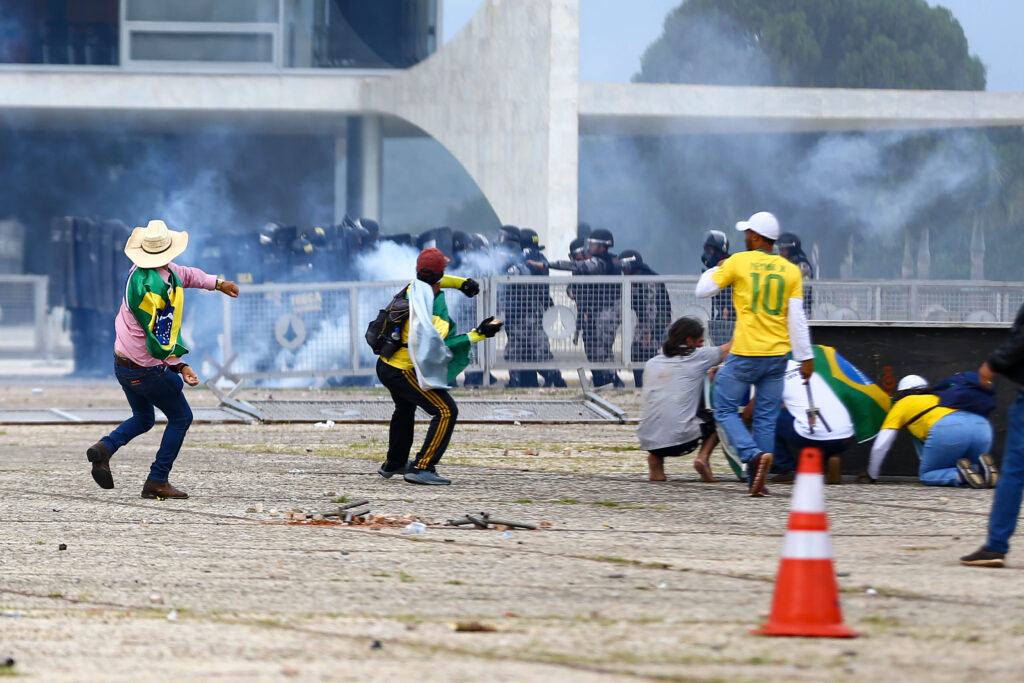
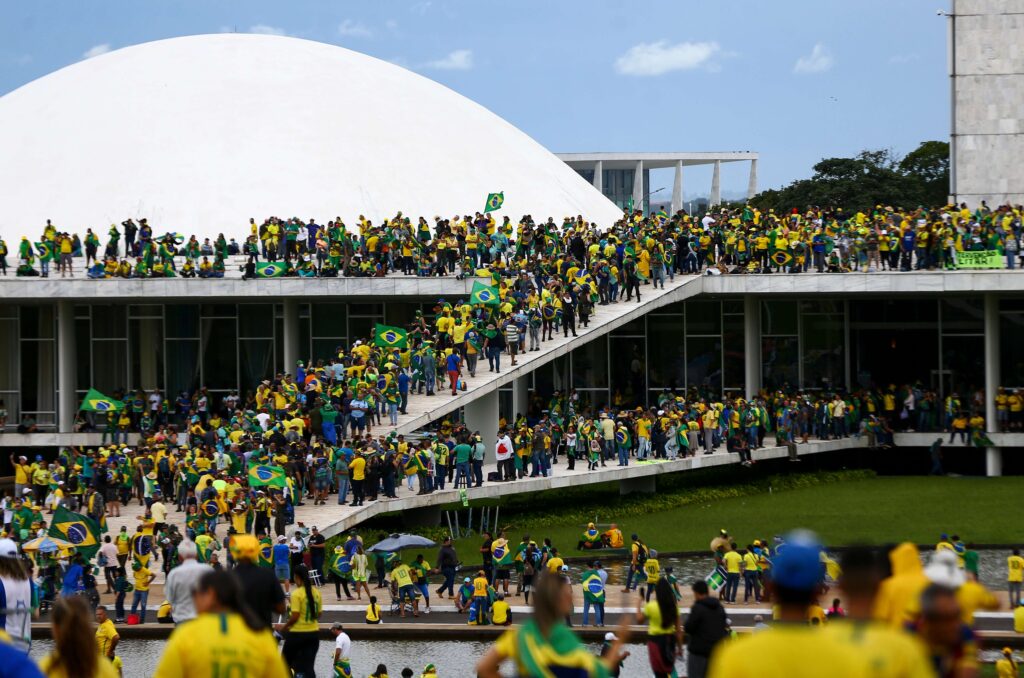
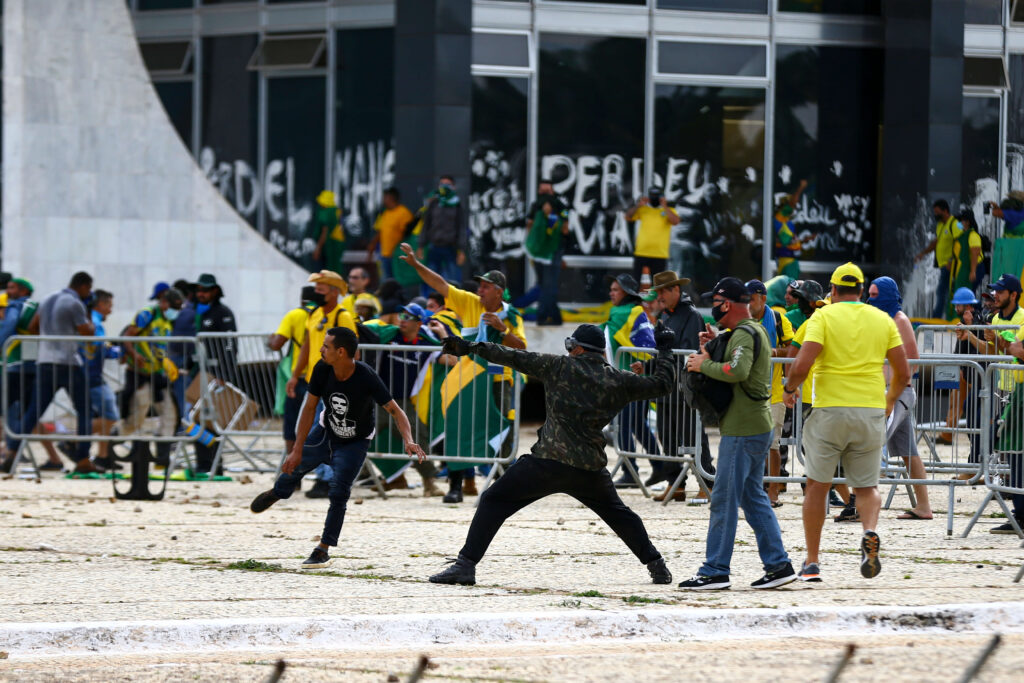
(photograph: Marcelo Camargo/Agência Brasil)
